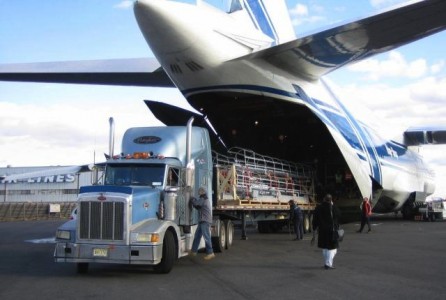Apple's partners assemble iPhone terminals and iPad tablets in China, and the company hires other transport companies to ship them to various areas around the globe, the companies using airplanes for this. Every time a new iDevice appears, Apple has to transport a lot of devices to stores all over the world, this means an overload of the companies' workload and the end result is an increase of air transport prices. More than that, Apple seems to have saved some companies that had to reduce their transport prices extremely much, the month of July recording the lowest prices of the last two years.
Transport experts said the launches of Apple products have become such big business for the air cargo industry that delivery firms and airlines have chartered dozens of extra planes, canceled scheduled routes and ditched staff training during "Operation iPhone Drop". Martin Dixon of freight research firm Drewry said the delivery of the iPhone had helped the air freight industry bounce back from a collapse in prices - July were the lowest since July 2009, when most of the developed world was gripped by recession. Dixon said the indicative average cost of air freight from China to the west had risen 7% to $3.56 (£2.20) per kg between August and September, and he expected it to rise even higher this month in the wake of the iPhone 5 launch.
Many companies had to rent additional planes and cancel trainings for employees, just to manage to deliver all the products that Apple transports, this launch of the iPhone 5 generating a 7% increase in the price of air transport of goods. Apple transports a lot of goods with the help of this kind of companies, but the launches of iDevices generate the biggest increase in the volume of transport and many probably enjoy the business done by Apple.
















